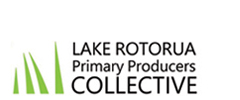Good Fertiliser Practices with Chris Haworth and Chris Stevens
INTRO
On-screen 4Rs text: Right product, rate, place & time Most New Zealand farmers use fertiliser to boost production and profit. The fertiliser industry promotes the ‘4Rs’ to help farmers get the best value from their fertiliser investment, and to reduce unwanted environmental impacts. The 4Rs of fertiliser use are the right source, right rate, right time and the right place. Today we are at Chris Haworth and Chris Steven’s 225 hectare dairy farm just north of Rotorua.
CHRIS HAWORTH & CHRIS STEVENS

Chris Haworth & Chris Stevens
We bought Tawa Ridge in 1992. Today we milk 520 cows at about 2.3 cows per hectare. We have several areas of native bush and a large DoC reserve on our boundary. A tributary of the Mangorewa Stream borders the farm, but only flows occasionally. This area has been fenced off and retired.
About three years ago we signed up to the GPS based Precision Farming tool. This technology helps us farm more efficiently, especially when it comes to fertiliser. In the past we noticed that a few paddocks got double fertiliser applications while other areas missed out completely. We also want to keep fertiliser away from the bush areas and stream margins.
With this tool you can watch the fert truck movement in real time on our office computer [‘Right place’ on screen text]. The trucks are Spreadmark certified which means the spreaders are regularly calibrated to apply fertiliser evenly and with a consistent width.
We automatically receive electronic ‘proof of placement’ for each fertiliser application. The software sums up each nutrient applied to each paddock. That allows us to put the annual N P K and S totals into our nutrient budget for Fonterra.
The subscription based system is entirely computer based, making it much easier to manage than folders full of paper. This gives us confidence that the right amount of fertiliser is placed in the right place – everything is traceable and accountable.
The right rate of fertiliser is about meeting pasture and crop nutrient requirements. This is true for the big four nutrients – nitrogen, phosphorus, potassium and sulphur – as well as micro-nutrients like selenium and cobalt.
Precision Farming helps us plan our fertiliser needs for the following year, along with the soil nutrient testing we get done every three years, annual OVERSEER nutrient budgets and expert advice
We are thinking about applying different fertiliser mixes to different paddocks and the tool help us with that too.
We buy ‘Fertmark’ approved fertiliser from Ballance Agri-Nutrients. Fertmark is a quality assurance scheme owned by New Zealand farmers. That means the fertiliser is guaranteed to have the nutrient composition we need and the right physical properties like particle size.
The right timing is about applying fertiliser to match seasonal plant and animal growth needs. We avoid applying fertiliser when plant uptake is poor like in winter. As well as being inefficient, there is a greater risk of nutrient losses in winter.
We generally apply fertiliser a little and often, especially for K and S which are easily leached on our pumice soils. In autumn, we wait for soil moisture levels to rise before applying nitrogen.
We’re really happy with the Precision Farming Tool. We’re confident that we’re getting the best value out of our fertiliser investment as well as moving to paperless quality assurance system
SUMMARY
The Haworth-Stevens pay about $2000 per year for their Precision Farming tool which includes setting up the digital farm map and software. For an average Rotorua dairy farm, 11% less N fertiliser applied under precision spreading is assumed to produce the same pasture dry matter as under conventional fertiliser spreading. This reduced N leaching by about 2 kg per hectare with a cost saving of about $8 per hectare.
 Perrin Ag Consultants assessed the Haworth-Stevens experience with using the Precision Farming tool for fertiliser spreading on their dairy farm. This analysis summarises nutrient savings, the impacts on profit and the wider farm system, risks and additional on-farm skills required to implement this nutrient practice. Key points are:
Perrin Ag Consultants assessed the Haworth-Stevens experience with using the Precision Farming tool for fertiliser spreading on their dairy farm. This analysis summarises nutrient savings, the impacts on profit and the wider farm system, risks and additional on-farm skills required to implement this nutrient practice. Key points are:
- Cost of the Precision Farming Tool is $2000 per annum, including setting up digital farm map and software
- $8 per hectare/year saving if N fertiliser application is reduced by 11% through precision fertiliser application
- 2.3 kg reduction in N loss per hectare/year
You can view the full nutrient and cost analysis here.
Other benefits of precision fertiliser application
- Electronic proof of placement
- NPKS summed for nutrient budget
- Paperless quality assurance system
More information about the 4Rs of good fertiliser practice
- 4Rs Pocket Guide
- 4Rs of Nutrient Stewardship
- Another short video highlighting environmental perspectives on the good fertiliser management and 4Rs principles
- International Fertiliser Association Policy and Toolkit explains the principles, policy and practice of the 4RS
Practical resources
- Information about the Precision Farming tool used at the Haworth-Stevens farm
- FANZ online guide to Best Management Practices And Considerations
- Bay of Plenty Regional Council’s Efficient Fertiliser Use factsheet
- Background information about the Spreadmark and Fertmark programmes
- Ballance’s N-Guru software program is designed to improve the efficiency of nitrogen use on pastoral farms
- Fertiliser Use on New Zealand Sheep and Beef Farms – A NZ Fertiliser Association guide
- Podcast by Doug Edmeades on how to optimise fertiliser spend by monitoring soils, clovers and pastures
- DairyNZ Reducing nitrogen loss on dairy farms
- DairyNZ Nutrient management on your dairy farm
Research
- A review of the economic impact of high levels of variance in fertiliser spreading systems. By Grafton, Yule,and Manning (2013)
- A review of technologies for improved fertiliser application accuracy. By Grafton, Yule and Rendle (2011)
- Measuring the Spread Patterns of Spreaders Under Normal Field Conditions Compared to test Conditions. By Grafton, Izquierdo Acebes, Yule and Willis (2016)












